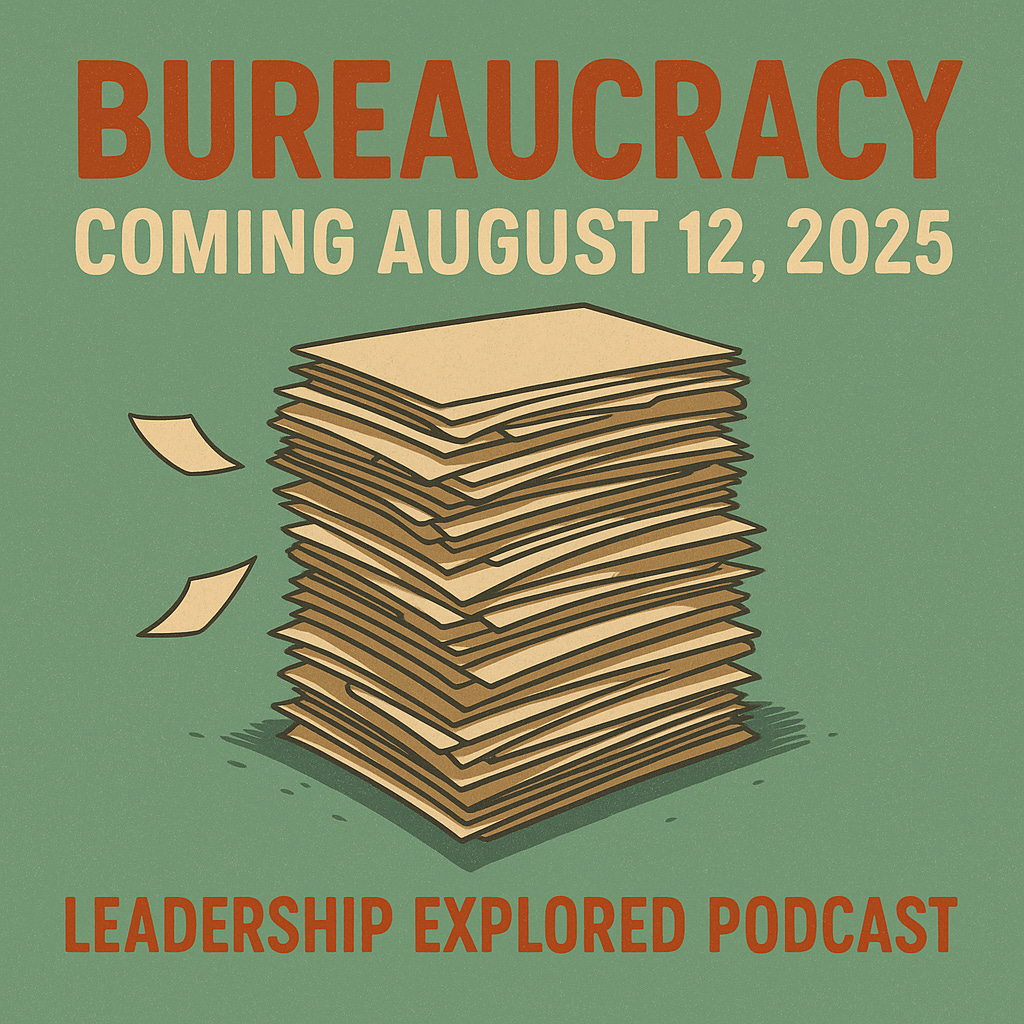Rethinking Bureaucracy
What If the System Isn’t the Problem?
Everyone loves to hate bureaucracy.
And in fairness… sometimes it deserves it.
But what if the problem isn’t the existence of bureaucracy—it’s the way we use it?
In Episode 11 of Leadership Explored, we’re asking a tough question that most leaders avoid:
👉 Is bureaucracy actually broken, or are we just blaming systems for bad leadership?
We explore:
Why bureaucracy exists in the first place—and what it was meant to do
How process can act as an external brain that reduces decision fatigue
What happens when rules become shields for avoidance and control
How to recognize the tipping point between enabling structure and dead weight
Why no process at all isn’t freedom—it’s just a different kind of failure
💡 If you’ve ever felt stuck in meetings that don’t matter, bogged down by steps no one can explain, or frustrated by systems that seem to serve no one—this episode is for you.
We also offer practical, real-world leadership strategies:
✔️ Start with the smallest intervention that might work
✔️ Revisit process regularly—because entropy is real
✔️ Design for clarity, not control
✔️ Ask: What problem are we solving? How will we know it worked?
And, as always, we share some stories, challenge assumptions, and probably make a metaphor out of hiking or toddlers. (We promise it makes sense in context.)
🎧 Episode 11 drops Tuesday, August 12, on all major platforms.
You can listen right here on Substack—or head to www.leadershipexploredpod.com for links to Spotify, Apple, YouTube, and more.
What we’d love from you:
💬 Drop a comment: What's a process or system that actually helped your team function better? Or one that totally missed the mark?
📩 Share this with someone in your org who’s stuck between chaos and overengineering.
🎙️ Follow the podcast to explore leadership with us every other Tuesday.
Leadership Explored is a podcast about what it really means to lead in today’s evolving workplace—hosted by Ed Schaefer and Andy Siegmund.
We blend lived experience, honest conversations, and practical frameworks to help you lead with purpose, not pretense.


